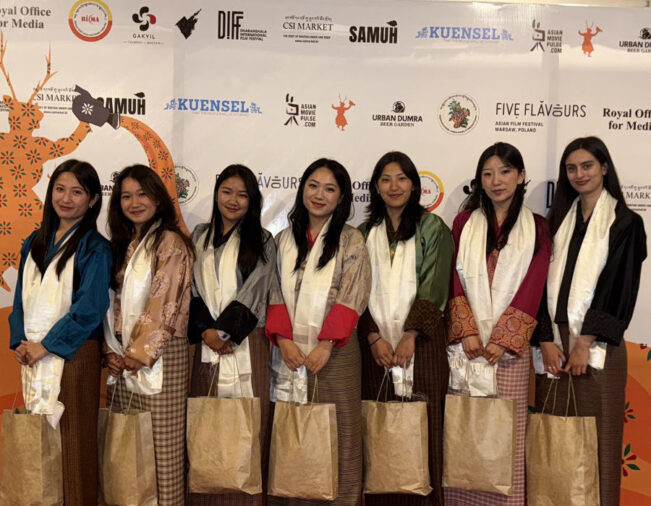
This year’s edition of Beskop Tshechu has recorded the highest-ever participation of female filmmakers. Out of 16 entries, seven are women. This is an increase from just one or two female participants in the past years. Their films explore bold and deeply personal themes, including disability, gender, sports, identity, and social change. The four-day event began yesterday.
What makes this year’s Beskop Tshechu even more remarkable is that most of the participating female filmmakers are college students. Many of them are competing with their very first films, ranging from fiction to documentary.
“I feel very happy to have participated in the Beskop Tshechu. As a girl, having access to such opportunities and platforms is really meaningful. I hope we can inspire other women out there who are passionate and want to take part in the future,” said Sangay Choden Thinley, a participant.
“I personally feel that the participation of women directors in filmmaking is crucial in Bhutan, as it gives a voice to women and highlights stories that are often unheard,” said Kinley Tshering Yangden, another participant.
Most of these female filmmakers highlighted how important representation and inclusion are in the film industry.
“In the future, I would love to see more diverse and accurate representations not just of women, but also of other underrepresented voices, especially in mainstream media. And not only on screen, but also behind the camera,” said Tenzin Tsheyang, also a participant.
According to Dechen Roder, the co-founder of Beskop Tshechu, one reason for the rise in female participation could be the visibility and recognition that previous female filmmakers have received.
Beskop Tshechu is a non-profit festival held every year since its launch in 2011. It is the only documentary, animation and short film festival in the country dedicated to promoting creative filmmaking and visual arts through film screenings, awards and events.
The festival is organised by a committee of volunteer filmmakers and artists dedicated to promoting creative filmmaking in the country.
As the festival continues over the next two days, all eyes will be on the screen. But perhaps the most powerful stories are not just in the films being shown but also in the lives of the women who are finally sharing them.
Kinley Bidha
Edited by Sonam Pem









